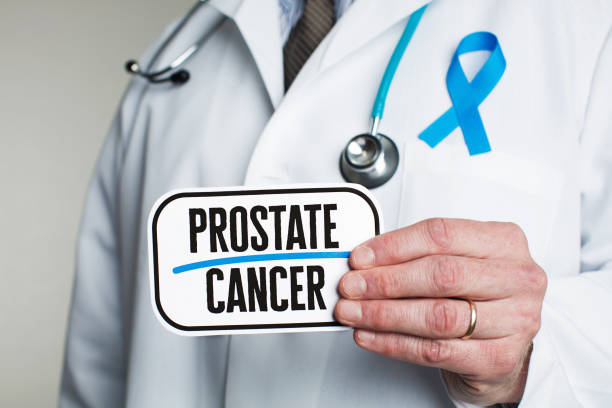|
One in seven men will be diagnosed with prostate cancer in their lifetime. That's a pretty staggering number, and it's one that we need to do something about. prostate cancer is the most common cancer among men, but it can be prevented! In this blog post, we will discuss 5 ways that you can help prevent prostate cancer from developing.
prostate cancer is most often diagnosed in men over the age of 50, but it can occur at any age. There are a number of risk factors that can increase your chance of developing prostate cancer, including:
Fortunately, there are things that you can do to help prevent prostate cancer. Here are some tips:
This is probably the most important thing that you can do. Getting screened for prostate cancer on a regular basis allows doctors to catch it early when it's most treatable. Talk to your doctor about when you should start getting screened and how often you should be tested. If you're over the age of 50, it's recommended that you get a prostate-specific antigen (PSA) test every year. If you're African American or have a family history of prostate cancer, you may need to start getting screened even earlier. PSA tests can sometimes detect prostate cancer before there are any symptoms, so it's important to get them on a regular basis. However, it's worth noting that PSA tests are not perfect and can sometimes give false positive results. This means that you may be diagnosed with prostate cancer when you don't actually have it. For this reason, it's important to discuss the pros and cons of PSA testing with your doctor before making a decision about whether or not to get tested. In addition to PSA testing, your doctor may also recommend a digital rectal exam (DRE). This is where the doctor inserts a gloved finger into the rectum and feels for any lumps or abnormalities in the prostate. DREs can sometimes detect prostate cancer before it's detectable by PSA tests, so they're an important part of early detection. If you're over the age of 50, it's recommended that you get both a PSA test and a DRE every year. If you have a family history of prostate cancer or are African American, you may need to start getting screened even earlier. Remember, prostate cancer is most treatable when it's caught early. So, getting regular checkups and screenings is one of the most important things that you can do to prevent prostate cancer.
Being overweight or obese increases your risk of developing prostate cancer. In fact, men who are obese have a 50% greater risk of developing prostate cancer than men who are at a healthy weight. If you're carrying around extra weight, now is the time to lose it. Eating a healthy diet and getting regular exercise can help you reach and maintain a healthy weight. There are a number of prostate cancer prevention studies that have found that maintaining a healthy weight is one of the most important things that you can do to prevent prostate cancer. So, if you're carrying around extra weight, now is the time to lose it. Eating a healthy diet and getting regular exercise can help you reach and maintain a healthy weight. Being overweight or obese not only increases your risk of developing prostate cancer but also makes it more likely that the prostate cancer will be aggressive and difficult to treat. If you're carrying around extra weight, now is the time to lose it. Eating a healthy diet and getting regular exercise can help you reach and maintain a healthy weight. Not only will maintaining a healthy weight help you prevent prostate cancer, but it will also improve your overall health. So, it's definitely worth making the effort to eat well and exercise regularly.
Eating a healthy diet is important for overall health, but it can also help reduce your risk of prostate cancer. There are a few things that you can do to eat a healthier diet. First, make sure to include plenty of fruits and vegetables in your diet. Aim for at least five servings of fruits and vegetables per day. Fruits and vegetables are packed with nutrients that can help keep your body healthy and protect against disease. In addition to eating plenty of fruits and vegetables, you should also limit your intake of saturated fats and red meat. Both of these have been linked to an increased risk of prostate cancer. So, try to substitute leaner sources of protein, like chicken or fish, for red meat. And, how-keto-diet-can-help-you-lose-weight-evidence-based.htmlchoose healthy fats, like olive oil, instead of saturated fats. Eating a healthy diet is one of the best things that you can do to prevent prostate cancer. So, make sure to include plenty of fruits and vegetables in your diet and limit your intake of saturated fats and red meat. following a healthy diet not only helps reduce your risk of prostate cancer but also provides numerous other health benefits. So, it's definitely worth making the effort to eat well. Some specific dietary changes that can help reduce your risk of prostate cancer include:
Making these dietary changes can help you lower your risk of prostate cancer and improve your overall health. So, it's definitely worth taking the time to learn more about how you can change your diet to reduce your risk of prostate cancer.
Exercise is important for overall health, but it can also help reduce your risk of prostate cancer. In fact, men who exercise regularly have a lower risk of prostate cancer than men who don't exercise. There are a few different ways that exercise can help reduce your risk of prostate cancer. First, exercise helps to maintain a healthy weight. As we mentioned before, being overweight or obese increases your risk of prostate cancer. So, by exercising regularly, you can help keep your weight under control and reduce your risk of prostate cancer.
If you have a close relative, like a father or brother, who has prostate cancer, you may be at an increased risk for the disease. So, it's important to know your family history and discuss it with your doctor. If you have a family history of prostate cancer, you may want to consider getting screened for the disease earlier than usual. You may also want to talk to your doctor about other ways to reduce your risks, such as changing your diet or exercise habits. Knowing your family history is an important way to help reduce your risk of prostate cancer. So, if you have a family member who has prostate cancer, be sure to discuss it with your doctor and take steps to reduce your own risk. These are just a few of the ways that you can reduce your risk of prostate cancer. So, if you're concerned about your risk for prostate cancer, be sure to talk to your doctor and take steps to reduce your risk. Thanks for reading! We hope this was helpful. Check back soon for more tips on how to stay healthy and prevent disease.
0 Comments
Your comment will be posted after it is approved.
Leave a Reply. |
Read More
All
|


 RSS Feed
RSS Feed